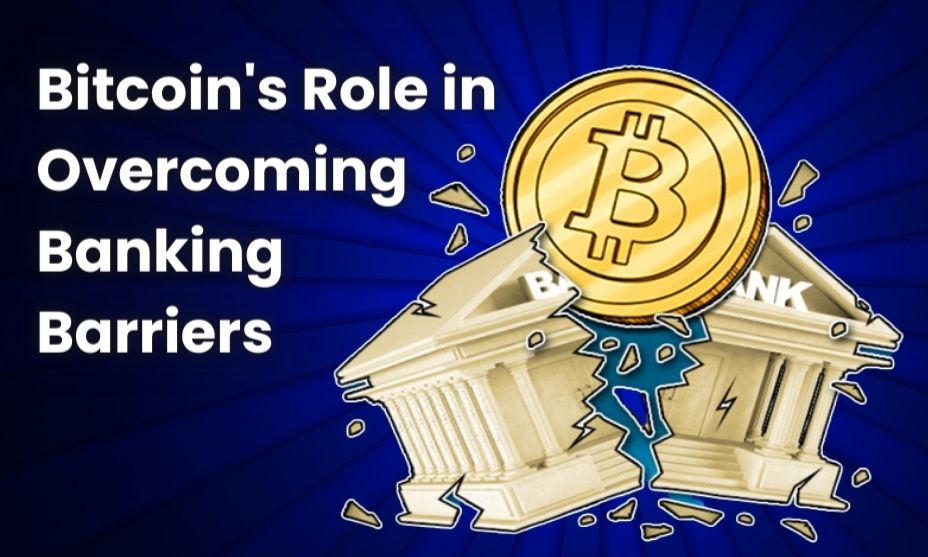Revolutionizing Finance – Bitcoin’s New Era

Explore the transformative power of Bitcoin in this article. We delve into its disruptive effects on traditional banking and its role in overcoming banking barriers. To navigate these potential barriers, many are turning to online trading platforms, such as the BitIQ official website, for aid in the brave new world of banking.
The Genesis of Bitcoin
To apprehend Bitcoin’s new era, we ought to first revisit its genesis. Bitcoin was born out of the 2008 monetary disaster, a time when conventional financial institutions evolved and eroded. Satoshi Nakamoto’s whitepaper, titled “Bitcoin: A Peer-to-Peer Electronic Cash System,” proposed a decentralized digital currency that would function outside the manipulation of governments and monetary intermediaries. This innovative concept struck a chord with those searching for an opportunity to use traditional banking devices.
Bitcoin: The Disruptor in Traditional Banking
In the realm of finance, Bitcoin has quickly emerged as a disruptive force. This disruption stems from Bitcoin’s stark contrast with traditional banking. Traditional banks operate as centralized entities, with stringent regulations, a set hierarchy, and transaction control. On the other hand, Bitcoin operates on a decentralized system powered by blockchain technology, eliminating the need for intermediaries and allowing transactions to occur directly between parties. This decentralization has made Bitcoin appealing to a global audience, leading to its rapid adoption.
Moreover, Bitcoin has revolutionized the idea of peer-to-peer transactions, appearing as true digital foreign cash-on-hand. This digital, decentralized nature of Bitcoin allows fast, less expensive transactions among events, regardless of geographical areas. This can stage the financial gambling subject, providing admission to financial offerings to people worldwide, especially individuals who are unbanked or underbanked. These populations, who frequently face barriers to standard banking services because of elements like high prices and geographical constraints, can use Bitcoin to get the right of entry to financial services without difficulty.
Bitcoin’s disruption of traditional banking also extends to the security and privacy realm. Traditional banking systems have often come under scrutiny for privacy concerns and susceptibility to fraud. Bitcoin transactions, in contrast, offer greater privacy due to their encrypted nature. While this doesn’t guarantee complete anonymity for Bitcoin transactions, it does offer a degree of pseudonymity that is impossible with fiat currency. Since blockchains are inherently secure, fraud and counterfeiting are less likely to occur.
Bitcoin’s disruptive impact on conventional banking stems from its decentralized structure, capability to facilitate peer-to-peer transactions and more significant security and privacy features. This has made it an attractive alternative to conventional banking, especially for those who are currently underserved through the traditional banking system. As Bitcoin continues to coordinate, it guarantees to result in even more changes to the banking and finance landscape.
Bitcoin’s Role in Overcoming Banking Barriers

Bitcoin is breaking down boundaries inside the global of banking by imparting answers to a number of the maximum long-status issues inside the economic sector. One of those is the problem of monetary exclusion confronted by means of unbanked and underbanked populations. A huge quantity of people around the globe lack the right of entry to fundamental banking services due to reasons like geographical separateness, poverty, or loss of identification. With its decentralized and virtual nature, Bitcoin offers a method to this threat. As long as someone has been admitted to the internet, they can use Bitcoin, thereby getting access to financial offerings, which include storing cash, making transactions, and even lending or borrowing.
Cross-border transactions and remittances form another barrier in traditional banking systems. These transactions often involve hefty charges and prolonged processing instances, making them impractical and unaffordable for plenty. Bitcoin, however, may be sent and obtained right away, everywhere in the world, at any time, for a very small rate. This makes it a powerful device for facilitating worldwide transactions, especially for migrant employees who often ship remittances to their domestic countries.
Furthermore, privacy and safety have continually been contentious troubles in banking. Conventional banking systems, being centralized, have a couple of factors of risks that can be exploited by means of hackers. In addition, they frequently require clients to provide big non-public data, which may be a barrier for the ones concerned about privacy. Bitcoin, however, addresses those worries by using imparting pseudonymous transactions. While all transactions are obvious and traceable on the blockchain, the identities of the parties worried are not easily traceable, supplying a degree of privacy.
Bitcoin’s unique characteristics and decentralized nature enable it to overcome barriers in traditional banking systems. It provides a means of financial inclusion for the unbanked and underbanked, facilitates affordable and quick cross-border transactions, and offers enhanced privacy and security. As such, it presents a significant step forward in making financial services more accessible and efficient for all.
Decentralization: The Core Tenet
Bitcoin’s new era is its decentralized nature. Unlike conventional currencies, which might be issued and controlled with the aid of important authorities, including imperative banks, Bitcoin operates on a decentralized ledger called the blockchain. This disbursed ledger is maintained via a community of nodes (computers) unfolding across the globe, proving it against censorship, manipulation, and unmarried points of failure.
Regulatory Challenges
As Bitcoin’s prominence grows, it has confronted increasing scrutiny from regulatory bodies around the arena. Governments and regulators are grappling with how to classify and modify cryptocurrencies. Concerns about cash laundering, tax evasion, and customer protection have precipitated calls for greater oversight and regulation.
While a few international locations have embraced cryptocurrencies and mounted clean regulatory frameworks, others have taken a more cautious technique or have outright banned their use. The regulatory panorama remains a big task and an ongoing factor of contention in Bitcoin’s new technology.
Conclusion
Bitcoin’s journey from an obscure whitepaper to a global monetary phenomenon is a testament to the energy of innovation and decentralization. Its new age is marked via institutional adoption, multiplied recognition, and the potential to reshape the destiny of finance. While demanding situations remain, Bitcoin’s transformative effect at the international monetary is simple and a force that can’t be overlooked. As we navigate this new technology, one component is obvious: Bitcoin is right here to stay, and its impact on the finance arena is most effective simply starting.




